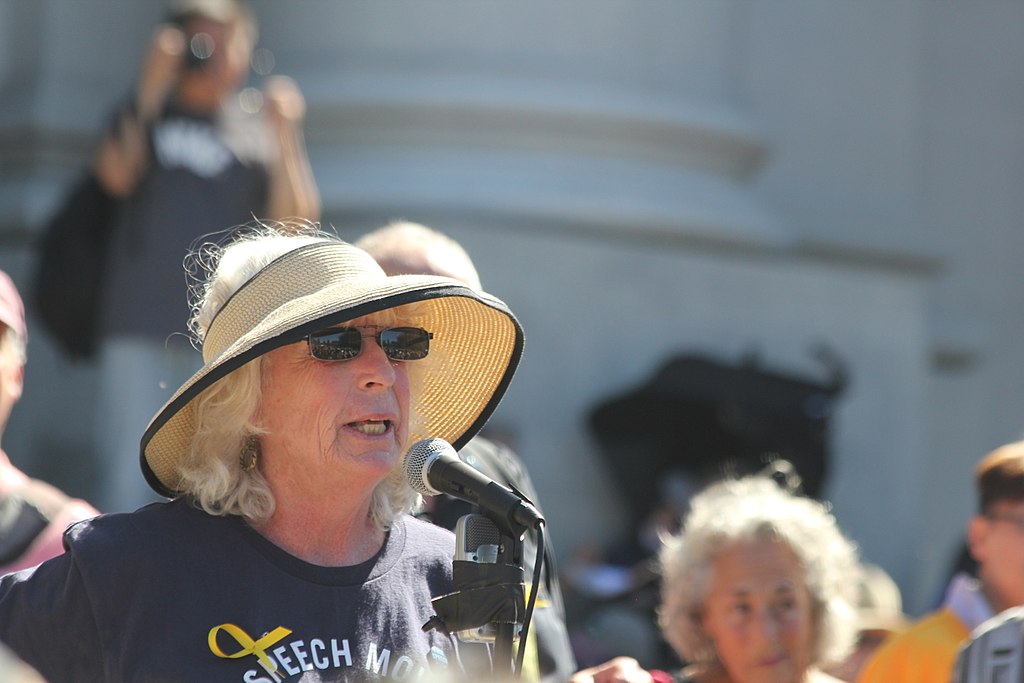College campuses across the US have erupted this week as students stage demonstrations in support of Palestine, often clashing with police.
More than 100 students were arrested at Columbia University, where students built an encampment to voice their discontent at US aid for Israel. Tensions flared afresh as Congress passed a $96 billion foreign aid package, with $26 billion in aid for Israel.
The students have also asked Columbia University administration to completely divest assets from Israel, which amounts to about $13 million.
Students Arrested
On April 22, police arrested 120 students at Yale University and 60 at New York University. Arrests have also been made at the University of Texas in Austin, Emory University, Vanderbilt University, Emerson College, and Ohio State.
Police have also arrested 90 people at the University of Southern California. The university announced April 25 it has canceled its main stage graduation ceremony, for fear of violence breaking out. Earlier this month, USC made headlines as it canceled the commencement speech of valedictorian Asna Tabassum, a Bengali American biomedical engineering student.
Lynne Hollander Savio

As of press night April 25, students in at least 20 college campuses in the US have staged massive demonstrations supporting Palestine in the Israel-Hamas war. The conflict, which began Oct. 7, has killed more than 34,000 Palestinians, and 1,139 Israelis, according to the latest data from the United Nations Office for the Coordination of Humanitarian Affairs.
Lynne Hollander Savio, widow of the late Free Speech Movement co-founder Mario Savio, told Ethnic Media Services she was bothered by the arrests of students asserting their right to speak for what they believe in. Hollander actively participated in the Free Speech Movement at UC Berkeley in 1964, and was herself arrested.
“I think it is absolutely craven,” she said of Columbia University President Nemat Minouche Shafik’s decision to call in police.
Academic Freedom
“She should be standing up for academic freedom and for the freedom of her students to exercise their Constitutional rights of free speech. She should not be supporting this kind of squelching,” said Hollander, who serves on the Board of the Free Speech Movement Archives, and is a secular Jew.
UC Berkeley’s Free Speech Movement began in 1964 as university officials yielded to new regulations, blocking students from distributing pamphlets about the Civil Rights movement at tables set up at one entrance to the campus. At a high point of the prolonged battle, students staged a sit-in at Sproul Hall on Dec. 2, 1964, resulting in 800 arrests.
Hollander, a senior at UC Berkeley in 1964, vividly remembers the night of her arrest. Here are excerpts from her interview with EMS, edited for space and clarity. The full interview can be watched in the embedded video below.
What led up to the arrests?
LHS: A lot of the emotional impetus for these protests came from the Civil Rights movement, which was then at its height, both in the South and in Berkeley and San Francisco. And students felt very strongly that the new regulations were aimed at stopping support for the Civil Rights movement, and that they were immoral and therefore had to be opposed.
There were 800 of us who were arrested that night, mostly students. And we were taken to the Oakland city jail for several hours, and then driven to Santa Rita jail, where we had a inedible dinner. We were very hungry, but we couldn’t eat it: it was pasta with no sauce. It was just dry, wet spaghetti.
Wow. You remember that? That’s incredible.
Yeah. And then we got out about at early in the morning, like at 2 a.m the next day. And the faculty had come to pick us up, which was nice. They raised a lot of money and paid our bail, so we were released.
There was a mass trial. My sentence was 30 days in jail or $300. And because I was heading to Mississippi (for the Freedom Summer movement, which attempted to register Black people who had been denied their right to vote) I paid the $300. But a lot of people who had that kind of a deal went to jail for 30 days.
Mario went to jail for three months.
Do you see remnants of the free speech movement in the actions that are taking place now on campuses across the US?
Well, yes and no. You have a great many students who feel a moral responsibility. Some of them feel the moral responsibility to try and stop the bombing of Gaza, which has been horrendous. Some of them are trying to assert the Palestinians’ right to an independent country, which is also a moral cause. And so in that sense, I think there’s obviously much more of a conflict.
The conflict between groups of students when we existed were between students who said: ‘We approve of your goals, but not your methods.’ It was just an argument about whether breaking the law was valid or not. That is not the situation here.
Neither side recognizes reality. Both cultures are there, whether they should have been or not. And that’s the way it is, and that’s the way it’s going to stay. And they’re going to kill each other if they don’t accept that.
If your late husband Mario Savio was alive today, what advice do you think he would give to the protesters?
I think he would say let all the voices be heard. I think that it’s distressing when the expression of different voices are stopped, whether they’re pro-Israel or pro-Palestinian or pro-human. And I think those voices should have been allowed to speak.
Mario believed that free speech was the absolute essence of what a human being is, and he did not believe in curbing it.




